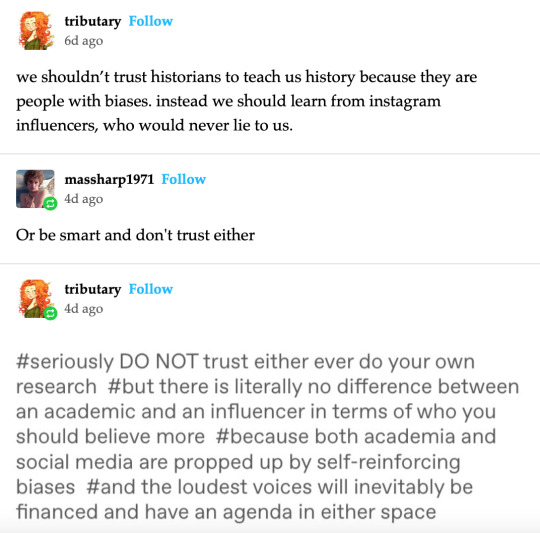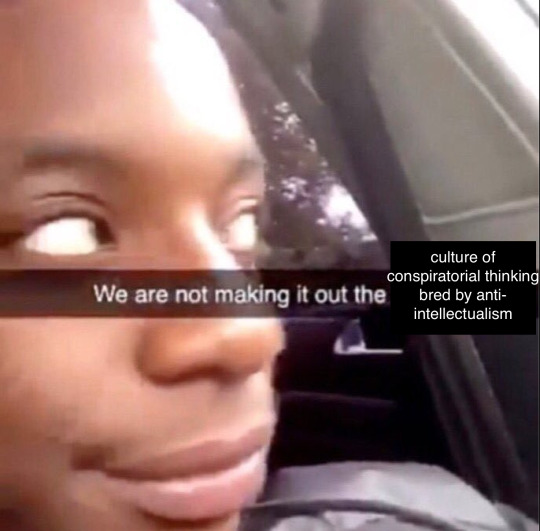#(E.g. ‘significance does not necessarily mean much’; ‘a Bayesian analysis woulda been better’)
Explore tagged Tumblr posts
Photo
*sigh*
one of the most important skills that is utterly drilled into you in academia is critical thinking. In an arts degree, you must learn to dissect an argument – if you cannot analyse effectively, you won't get through. In a science degree, you will be taught not only how to read papers, but how to critique them. Science is defined by the scientific method – and as tedious as it may sound, there is no skill more important than being able to scientific method your way through life.
The most important part of research is knowing how to do research – how do you find high-quality papers? What is high-quality evidence? Is it actually appropriate? What does 'significant' actually mean? The media loooves to deploy these terms without having a clue what the scientific meaning is – and as a result, the public get fooled. If you do not know how to do research, you will not find good information by doing your own research.
For example – members of the public who do their own 'research' into trans healthcare might come across the Cass Review, and see that it doesn't find much 'high-quality evidence' for gender-affirming care. They might think 'okay, guess trans healthcare is bad/experimental'. But if you've done academia, you'll know that 'high-quality' is just a synonym for 'randomised control trial' (RCT). For most research, RCTs are the gold standard. But RCTs require that people be unable to tell which condition they're in – that is, if they're receiving a placebo, they won't be able to tell. But with gender-affirming care, you can't exactly conceal the effects of hormones or surgery from a participant – after all, growing boobs/having a voice break/getting facial hair/altered sexual function is kinda hard to not notice. So, an RCT would actually be a completely inappropriate study design. Ergo ‘high-quality’ evidence is a misnomer, since it’d be really poor evidence for whether the treatment is helpful. As such, we know that so-called low-quality evidence is both more appropriate and perfectly sufficient. Academia is crucial to learning to debunk bad research.
And before y’all claim ‘but the papers being cited are all the ones that are getting funding – it’s just corrupt’ – you do realise being taught to spot bad science means that we get explicitly told how to spot corruption? Often, we can learn to tell when papers’ results are dodgy. Academia is about learning not to accept status or fame as a good enough reason to trust something. While I agree there are massive problems with some fields getting underfunded, or with science deprioritising certain social groups, abolishing science will only make this worse.
So. In conclusion, academia may be flawed, but it’s by far the best thing we have for learning to think critically. Anti-intellectualism is a blight on society, and horribly dangerous - it gets folks killed.



#I’m doing a double arts/psych degree so this matters to me. Dearly#I hate to tell you but learning statistics and scientific methods is really important#And learning to argue effectively and critique bad logic/bad science will save you from so much bs#Also. You have to know how the papers work in order to critique them#(E.g. ‘significance does not necessarily mean much’; ‘a Bayesian analysis woulda been better’)#(I love Bayesian methods)#The ‘common statistical/reporting/logical failures’ part of my psych degree has been invaluable#important#science#academia#cass review#anti-intellectualism#anti intellectualism
153K notes
·
View notes